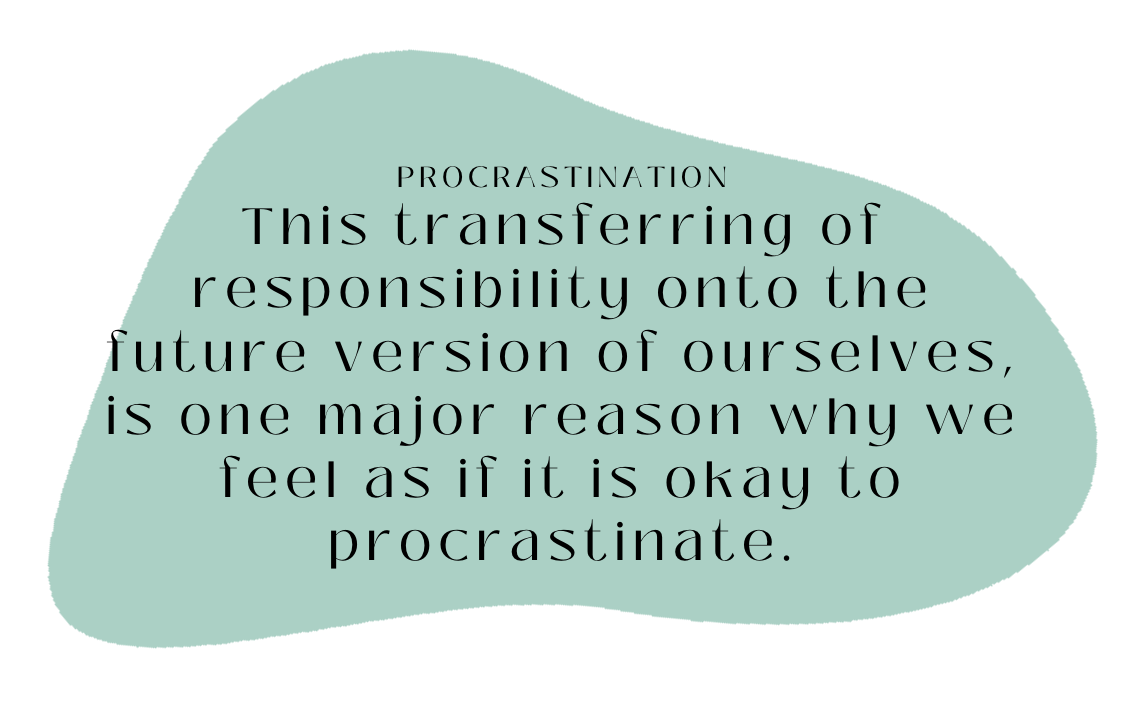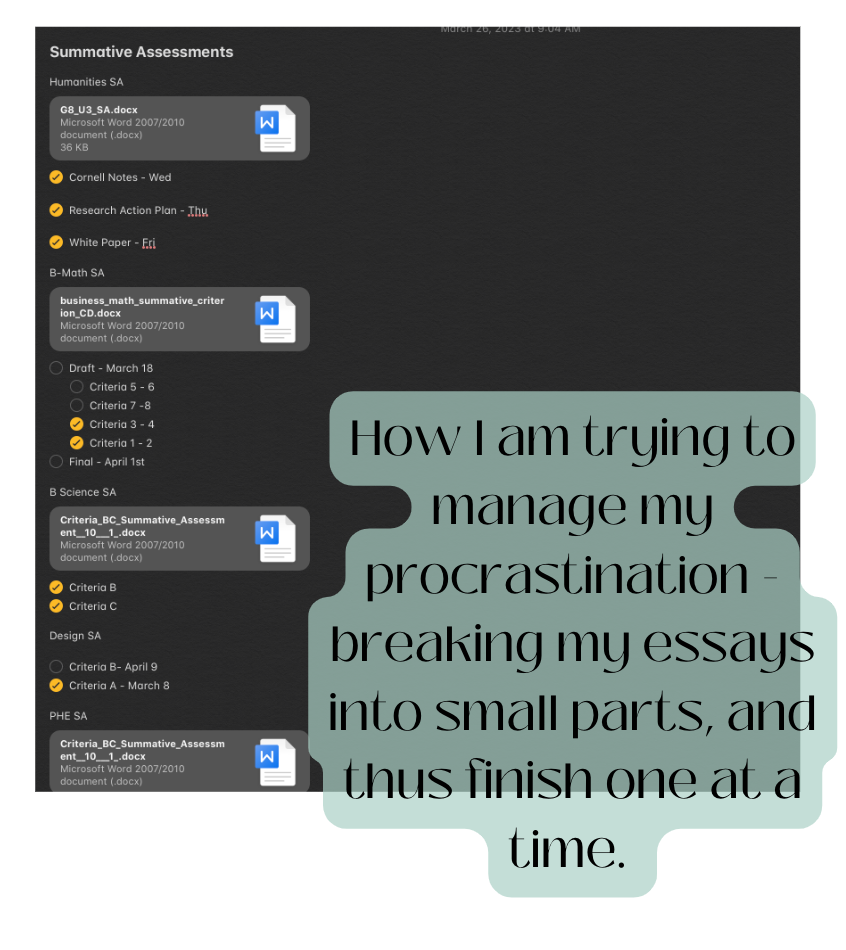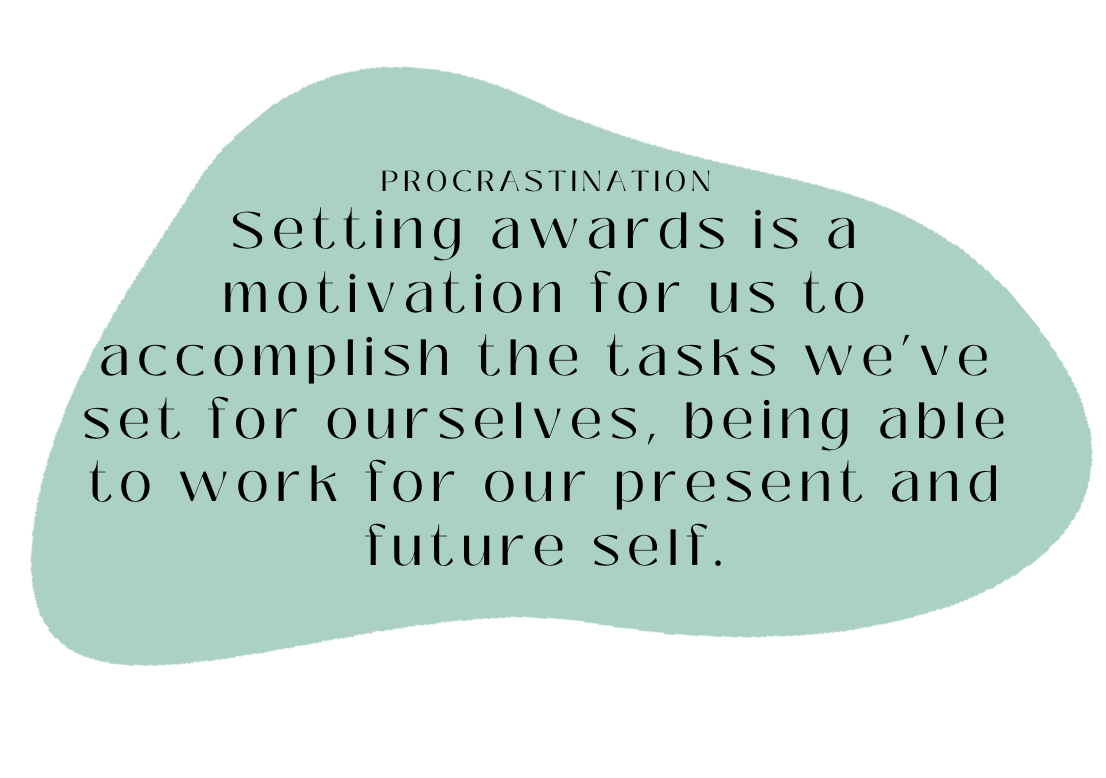procrastination
procrastination.
If people don't change their mistakes, they mostly retreat from the old ways; One must cheer up, don't hesitate, and don't bother to wait.
- Liao Fan
procrastination |n|
the action of delaying or postponing something.
These past two weeks have been hectic. As it is the middle of the term, there have been many essays and research reports I have to hand in for school as part of the evaluation for my midterm grades. What made this week so hectic? My utter lack of time management and habit of procrastination. Whether your form of procrastination may be simply putting off cleaning your room or for others like me, avoiding doing any work for assignments before the last possible moment, some of my classmates turned in their assignments a week early, yet I was here, trying to finish a 3000-word essay one day before the due date.
I am definite that we all struggle with procrastination, even if we have graduated, or retired, procrastination is universal. As a student, I would like to provide insight into procrastination, why we do it, some misconceptions about why we procrastinate, and how we can change it. I believe this topic will expand to much more than just a discussion on bad time management or lack of motivation, but is a look into our thoughts and beliefs in ourselves, our future, and our ability.
why we procrastinate
In this discussion, I believe it is crucial to view procrastination as putting something off. It is not getting distracted whilst doing something but not even beginning to do it in the first place. While getting distracted is a matter on the lack of self-control, procrastination is the result of emotions and thoughts.
So many parents, teachers, or peers blame us for not caring about our future and our grades. They ask us if we want a better future, retelling and stating how procrastination will affect us. But the reality is, we are all completely aware of what we are doing, and telling us the same messages over and over again will do nothing to help us. I am sure that all of us know how ineffective last minute studying is, or the anxiety caused by having to clean your room in the last 5 minutes before guests come over. We understand what will happen if we procrastinate, but we still do it. Why is that?
There are two primary reasons. First, procrastination is often associated with negative emotions and thoughts toward a particular task or project. Due to the fear, anxiety, and even boredom, we may hold towards accomplishing a particular task, our brain and mind urge us to hold off doing that particular task for as long as possible. These feelings could sprout from the overwhelming matter of accomplishing a big or challenging task.
We may also feel that we cannot complete the task to the best of our abilities or that our work will not meet our own or others' expectations. We delay taking action because we are afraid of what will happen once we start. We feel as if we cannot accomplish such an important task well, and thus, why not put it off and finish it later?
We have built such high barriers for ourselves; barriers of perfection, fear, and self-protection that we do not have the mental strength to cross over and start taking action, even if we know that we need to.
The second reason we procrastinate is due to an important view of our identity and sense of self. Studies have shown that we don’t view our future selves as having to take the burden of our actions. We don’t even treat the future self as if it is, in fact, another person. This way of viewing our present and future selves has allowed us to indulge in other less important things instead of doing the work we need to do. Even if we were to waste our time in the present moment, the results are for our future selves to face. In the present, we can relax just fine. Though procrastination does cause anxiety for us, even in the present, there is still time, and thus, we don’t have to start taking action. This mentality, this transferring of responsibility onto the future version of ourselves, is one major reason why we feel as if it is okay to procrastinate.
How can we stop procrastinating
So, how can we stop if procrastination is a matter of mindset, of emotions? By addressing each of the problems procrastination sprouts from.
The first method is to overcome the emotional barriers we have created for ourselves. To conquer the fear and overwhelming feelings caused by big, heavy tasks, such as essays, I have one major solution that has helped me in an incredible amount of ways. Break down the task. Breaking down a big task such as writing an essay into many parts - Brainstorming stage, research stage, draft stage, revising stage, and reviewing stage. You can break brainstorming into smaller categories- understand essay purpose, brainstorm the main argument, brainstorm sub-arguments, and organize brainstorming into mind map. Breaking down our tasks can give us the time to finish each sub-task well, and on time, aiming to meet the excpectations we may have set for ourselves. We won ‘t feel such a high need to procrastinate as the task is smaller and easier. Once we have started, we will feel a sense of accomplishment, enabling us to continue to work on it. Breaking tasks into smaller parts is the best way to break down the emotional and mental barriers that cause procrastination.
So how should we solve the disconnection between our future and present selves? Setting rewards for ourselves that can only be achieved by our future selves. Our brains are always on the hunt for rewards, for benefits, and if the value of this benefit is greater than the negative consequences, we will be implied to try and achieve it. But here is the important part - set an award you can only achieve in the future. You cannot gain this award if you procrastinate right now in the present. Thus, we are able to link our future and present selves together. Instead of giving the burden of a task to the future, we feels as if we need to take action right now, in order to achieve that reward. This could be an expensive ticket to a concert or movie with friends or family two days from the present. If you don’t finish the sub-task you set for yourself by then, your family will go without you. However, if you finish the task, you can go along. Setting awards is a motivation for us to accomplish the tasks we’ve set for ourselves, being able to work for our present, and future self.
We must understand that procrastination is not an act of weakness, lack of self-control, or disregard for our future. It is simply the result of uncontrolled emotions and responsibility. To stop procrastination, we shouldn't have to direct our focus on self-control but instead solve the problem from its roots, turning our tasks into manageable, achievable, and desirable goals.
Citations:
"Why You Procrastinate (It Has Nothing To Do With Self-Control) (Published 2019)". Nytimes.Com, 2019, https://www.nytimes.com/2019/03/25/smarter-living/why-you-procrastinate-it-has-nothing-to-do-with-self-control.html. Accessed 26 Mar 2023.
Flett, Gordon L. et al. "Procrastination Automatic Thoughts As A Personality Construct: An Analysis Of The Procrastinatory Cognitions Inventory". Journal Of Rational-Emotive &Amp; Cognitive-Behavior Therapy, vol 30, no. 4, 2012, pp. 223-236. Springer Science And Business Media LLC, doi:10.1007/s10942-012-0150-z. Accessed 26 Mar 2023.
Hershfield, Hal E. "Future Self-Continuity: How Conceptions Of The Future Self Transform Intertemporal Choice". Annals Of The New York Academy Of Sciences, vol 1235, no. 1, 2011, pp. 30-43. Wiley, doi:10.1111/j.1749-6632.2011.06201.x. Accessed 26 Mar 2023.




